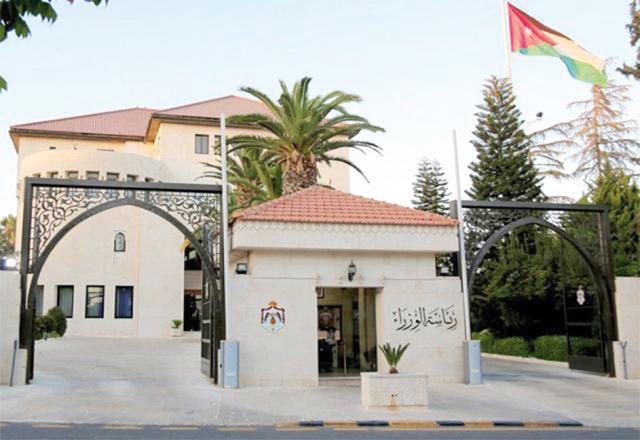You are here
Government’s austerity measures ‘déjà vu, ineffective and cosmetic’
By Ahmed Bani Mustafa - Jun 27,2018 - Last updated at Jun 27,2018
AMMAN —The recent government’s measures to cut spending are good but not enough, and should include all the state institutions, experts and citizens said.
The Cabinet has recently taken several decisions to reduce expenditure of ministries by JD151 million.
It decided not to buy new vehicles and furniture, to use vehicles only for official purposes, rent buildings and limit the maximum number of official delegations to missions abroad to three people, including the head of the delegation, and to assign members of embassies to participate in meetings whenever possible.
The Cabinet also decided to continue deducting 10 per cent of any amount above JD2,000 of ministers’ salaries. The decision, which includes the prime minister’s wages, will be effective as of July 1.
For Issam Qadamani, an economist and a columnist, the decisions are “déjà vu” in the sense that Jordanians have heard similar decisions from previous governments.
All these measures are superficial and part of a populist policy, said Qadamani.
Instead, they had to reduce the number of ministries, said the pundit, adding that, in principle, cutting spending is a better option as it would affect performance and services.
On reducing the number of official delegates to three and assigning members of embassies to join meetings, Qadamani said that the embassies are already complaining about being under-staffed.
Also embassy staff may not be relevant to the missions of delegation, he added.
All decisions that Prime Minister Omar Razzaz has taken are limited to the prime ministry, which make them below the expectations, economist Wajdi Makhamreh told The Jordan Times on Tuesday.
“Such measures should be applied to the entire public sector including all institutions and officials of all ranks”, he said.
Cutting the public expenditure has also to involve the Parliament, said the economist, who added the lawmakers should show more social and national sense of responsibility.
The pundit called for raising the awareness of and monitoring public sector employees at every institution.
He suggested that institutions include saving or wasting public funds in the annual performance evaluation of employees.
Mohammad Abu Aqel, a citizen from Irbid, said that the decisions are on the “right path” provided that they are implemented.
Aqel said that, apart from these decisions, the government has much more to do and has to take measures that reflect directly on people’s livelihoods.
“It has to seek publicity through real reforms rather than cosmetic measures that have little or no benefits for the public”, he said.
On the official delegations, Aqel said that limiting the number of delegates to three is a right decision, but the government should also ensure that institutions choose the right members on the basis of competence and relevance rather than favouritism.
For Omar Mahmoud, a citizen, the decision related to deductions from 29 ministers’ salaries is not effective as it has a little benefit to the Treasury.
The decision should involve all of the public sector’s employees whose salaries exceed JD2,000, a measure that was approved but not applied by a former government, according to Mahmoud.
He also called for a clarification of the deduction mechanism as senior officials receive several allowances that are not part of the official wages.
Fakher Daas, coordinator of the National Campaign for Defending Students’ Rights (Thabahtoona) claimed that these decisions reflect the government’s “inability” to take “real and serious” measures that meet the public demands.
He called on people to have a longer-term memory when witnessing the decisions of the incumbent government, which he described as a “bad version” of the former ones, while also criticising the public’s “fish memory”.
Related Articles
AMMAN — The Cabinet, in a session that was recently headed by Prime Minister Omar Razzaz, decided not to buy vehicles except in urgent situa
AMMAN — The government’s announcement on Sunday of a plan to merge several ministries and public institutions may not be a feasible action t
AMMAN – While the Jordan Medical Association announced that the annual salary increase of medical staff will not be cancelled, many doctors















